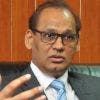
« Civilization is the progress toward a society of privacy ». Ayn Rand
In recent weeks, a local event and an international one have caught the attention of ordinary citizens. The former is related to the criminal leaking of a highly confidential document on a loan of 1.1 million euros taken by an incumbent minister from the State Bank of Mauritius, a commercial bank falling under his remit at the time of borrowing. The latter is dubbed the “Panama Papers” with reference to tax papers that were leaked from a Panama law firm, containing a wealth of information about those who place funds in offshore financial centres. A common thread runs within the two cases: financial privacy. This is a serious issue that has been lightly dismissed in the uproar of the self-righteous. The setting-up of the Integrity Reporting Agency makes it all the more important to reaffirm that financial privacy is absolutely essential to liberty.
The confidentiality of financial transactions is undisputed. Everybody could not agree more. However, some well-minded people add a proviso to this fundamental principle: an insider has a moral duty to disclose a transaction that he believes tainted. So runs this argument, there is no such thing as complete confidentiality, for the public has the right to know the financial affairs of bank customers. This particular notion of transparency is not only dangerous for the good running of business but also puts individual freedom in jeopardy.
For more than ten years now in Mauritius, “Know Your Customer” regulations have been imposed on financial institutions and on professional services providers dealing with the global business sector. They are required to create client profiles and to report all activities that are deemed suspicious, i.e. transactions that do not correspond to that profile. Those who fail to comply with this requirement are subject to prosecution and fines.
This legal obligation has created a deluge of paperwork for private firms and for government agencies, and it has actually undermined law enforcement. How many convictions has it resulted? Maybe just a few. Surely 99.99 per cent of people who had their privacy invaded were law-abiding citizens doing their business honestly.
Here an economist would ask two questions. Are the total private and public sector costs incurred per conviction worth the loss of privacy for non-criminals? Does the conviction of a couple of white-collar criminals justify the restriction of economic freedom of several thousands of business operators? The answers are obviously no. And these regulations must have deterred more foreign investment than they have encouraged in Mauritius.
The regulatory tightening of routine operations aims to suppress money laundering and, by extension, to curb drug trafficking. For sure, there is a real need to combat these crimes. But to proceed through a draconian financial disclosure system that allows abuses of privilege by regulators will be ineffective.
Bankers, by virtue of the nature of their work, are paid to never reveal the contents of bank accounts to anyone, and not to serve as agents of the state by monitoring the transactions of their customers. It is morally unacceptable that banks act as government informants against clients from whom they derive income in the course of their business activity! It is even unethical for financial institutions to spy on their customers without telling them, viewing them as potential money launderers or tax evaders. Such a system of financial spying is oppressive, the more so as the burden of proof rests with the customer to demonstrate his innocence.
The intrusiveness of financial regulations is also justified by governments to crack down on offshore tax dodgers and to improve tax collection. Tax evasion is illegal, but it is perfectly legitimate for anybody to keep money in offshore banks to avoid taxes. The morality of tax avoidance is that it is a form of opposition to a profligate or corrupt state. Citizens must have the right to refuse to fund a government that is misusing taxpayers’ money. It is high tax rates, not offshore financial centres, that encourage people to evade tax.
Anyway, new technologies that help enhance financial privacy leave little hope for tax collectors and financial regulators to retain control over the flows of money and to detect money laundering. Combined with strong public-key cryptography, which allows secure transmissions over telephone lines, the Internet makes possible international private exchange of money substitutes without the knowledge or consent of governments. The latter can neither regulate nor tax instantaneous encrypted transactions. In this digital age, laws that were written for a bygone era to restrict financial privacy will become increasingly difficult to enforce, at least in a reasonably cost-effective manner, and countries that keep them will pay the price in economic inefficiency.
Governments should assure citizens of a zone of financial autonomy rather than gathering more personal financial information on them and leaving little place for human dignity. Advocating the protection of financial privacy is not the same as condoning tax evasion, money laundering, corruption practices, drug dealing or terrorism. It is merely acknowledging that financial privacy preserves civil liberties. It was banking secrecy that helped to resist twentieth-century dictatorships. Financial freedom remains a bulwark against the spying state.

Notre service WhatsApp. Vous êtes témoins d`un événement d`actualité ou d`une scène insolite? Envoyez-nous vos photos ou vidéos sur le 5 259 82 00 !





















